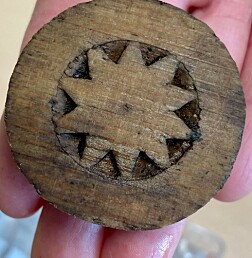
Boys who spend all their time gaming: A huge social experiment with unknown consequences
Even boys with good grades in high school spend almost all their free time gaming. They’re pretty relaxed when it comes to homework, a new study shows.
On average, boys get worse grades than girls in school. At the same time, research shows that they spend less time than their female peers on homework and more time on computer games.
In a new scientific article published in the Nordisk tidsskrift for ungdomsforskning (Nordic Journal of Youth Research), two sociologists have delved into how much time boys spend on homework and computer games.

Concerns about children and young people's time spent on gaming are frequently raised in the public debate and around the dinner tables in Norwegian homes. Despite this, there is very little research that has looked at this connection in the past.
Life is about computer games
The article is based on interviews that Karolin Elisabeth Moberg did when she wrote her master's thesis at the University of Bergen (UiB). She now works as a scientific assistant at NOVA, a social science research institute based at Oslo Metropolitan University, OsloMet.
Kristoffer Chelsom Vogt, a professor and head of department at the Department of Sociology at UiB, wrote the article with Moberg. It is based on interviews with eight high school boys and four of their mothers.
Researchers are most often interested in the boys who don’t do so well at school for these kinds of studies.
However, in this small, qualitative study, the researchers wanted to study ‘ordinary’ boys who play computer games.
This group, they believe, has been overlooked in the past.
None of these boys are poor students. Their grades were above average, equivalent to four in the Norwegian grade point system.
But their free time was mostly just spent on computer games.
“They used almost all their free time to play, from the time they got home from school until they went to bed in the evening,” Moberg said.
Almost all boys are gamers
The boys she interviewed may not be that unusual.
Almost all boys in Norway of this age spend time on computer games every day, large, quantitative surveys show.
Girls also spend some time on computer games during their childhood, but with age this gap in gaming time gets bigger and bigger.
A survey called Ungdata from 2019 showed that 70 per cent of Norwegian boys at upper secondary school spend at least an hour every day on computer games, compared to 28 per cent of girls.
Carefree
Moberg was surprised at how easily these boys handled their school work.
Several said they had no homework. They practiced for tests and handed in the submissions they had to, but nothing more.
“They were carefree and self-confident about their school work. They thought they were so good that they didn't need to work,” she said.
It wasn't just homework that was neglected by gaming.
“Computer games dominated all their free time. Other activities became just a distraction from the game world,” she said.
Appreciated parent-led activity
The researchers nevertheless found two activities that could physically draw the boys away from their screens.
One was organized leisure activities, such as training.
The boys also appreciated when their parents initiated activities that got them away from their screens.
“These were mostly simple things, such as meals where there was time to talk together. Or watching a TV series, playing board games or going on a cabin trip together,” Moberg said.
Attracted to the brotherhood
Why are boys so attracted to computer games?
This is one of the questions the researchers address in the article.
“In the interview, the boys said that they are hugely attracted to the brotherhood, the social cohesion, which they found in the digital boys' rooms,” Vogt said.
It turned out that the boys don't just play computer games. They do it in combination with being in chat groups on a communication platform called Discord.

Only boys allowed
The boys are careful about who is invited into these group conversations.
Only boys were allowed to join the digital rooms, either through someone they had met physically, or if they were friends of friends.
“The boys say that there is space in these boys rooms to talk about all kinds of feelings, both big and small. Or to just have fun. It was like a digital youth club,” Moberg said.
But the humour there is raw, and the language is rough. That's why the boys don't want girls in these digital rooms.
As a result, a great deal of the boys' free time is very gender segregated.
“If you sit in these gender-segregated, digital rooms and immerse yourself in a world characterized by stereotypical jargon and symbolism, and often resistance to gender equality, it's very likely to believe that there will be consequences in the long run. We just don't know which ones, because these phenomena are so new,” Vogt said.
Parents give up
In the interviews Moberg conducted with the mothers, it is clear that the parents gave up regulating gaming in relation to school work.
One mother said:
‘No, I can't do anything about it. I will never get an overview of his homework or what he is doing on the internet.’
They may hear through the walls that their son is enjoying himself and laughing while sitting there.
“This kind of response legitimized the fact that the boys spent so little time on homework. The parents were reassured by the fact that the boys had a social life in the gaming world,” Moberg said.
Another mother told the researchers:
‘So it's just a matter of realizing and understanding that he doesn't just sit and play games, he has a social life there. It's just a matter of realizing that now they are social in a new way than what I grew up with.’
More research needed on the consequences
There can be many positive aspects to the social community these boys experience online, the researchers believe.
At the same time it can be problematic, in part because these boys' rooms are so gender-segregated.
The consequences of this should be further addressed in larger studies, they believe.
At a conference organized by Kilden genderresearch.no in Oslo in early November, Kristoffer Chelsom Vogt warned:
“If you sit inside and play games most of your waking hours during childhood and adolescence, it obviously does something to your psychological and social development. We just don't know what it does,” he said.
“This is a huge social experiment with unknown consequences,” he said.
Vogt is concerned about the consequences of the boys immersing themselves in a world characterized by stereotypical jargon and symbolism, and often resistance to equality.
“To the extent that I am concerned about a large majority of boys, the concern is linked to the long-term consequences of thoroughly digitized leisure time characterized by sitting still, gender division and radicalizing algorithms,” he said.
It's not just the school that needs to sort things out
He believes that society must pay more attention to the fundamental change that is now taking place in children's and young people's free time.
This issue is often identified at school when boys have problems.
“It’s easier and more tangible to blame the state when some boys begin to struggle in the transition to adulthood. I believe we have to focus our gender- and equality lens slightly more toward the ongoing fundamental change in children's and young people's leisure time,” he said.
Translated by Nancy Bazilchuk
Reference:
Karolin Elisabeth Moberg and Kristoffer Vogt: Gutters tidsbruk på dataspill og skolearbeid. Nordisk tidsskrift for ungdomforskning. (Boys' time spent on computer games and schoolwork. Nordic journal for youth research). Year 2-2022. (in norwegian)
———
Read the Norwegian version of this article at forskning.no
------




































